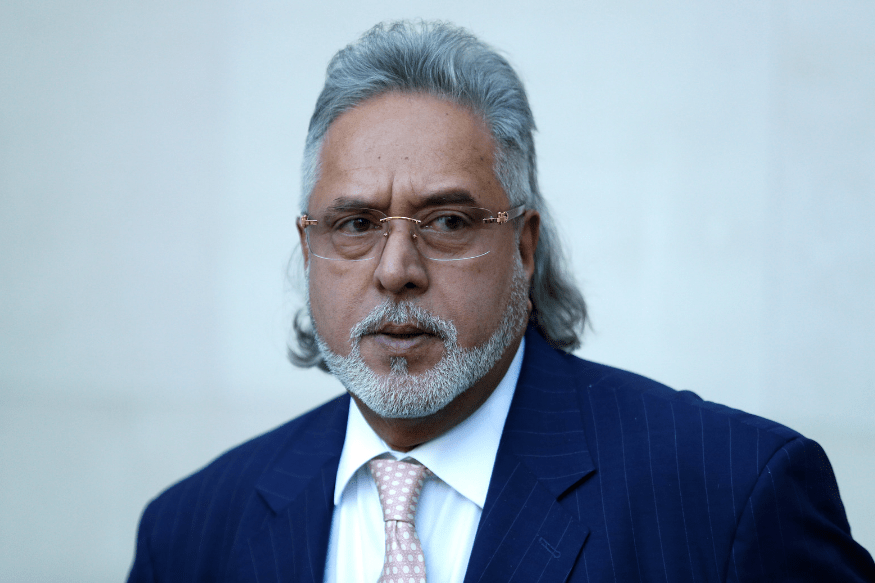Indebted businessman Vijay Mallya has avoided being made bankrupt in the London High Court after a Judge adjourned the bankruptcy petition the Indian banks brought against him, slamming it as “by any measure extraordinary”. Chief Insolvency and Companies Court judge Briggs adjourned the petition for “at least six months”, saying Mallya should be given time to pay the debts in full.
A consortium of 12 state-owned Indian banks led by State Bank of India and an asset restructuring company that purchased debt owed to other Indian banks had commenced bankruptcy proceedings against Mallya in the Insolvency and Companies List of the court on December 10, 2019.
The bankruptcy petition is based on a judgment debt of £1.05 billion (Rs 9,920 crore) made by the Debt Recovery Tribunal, Karnataka, in respect of unpaid loans given to Kingfisher Airlines, for which Mallya provided a personal guarantee. That judgment debt was registered in England on November 24, 2017.
On Thursday, handing down judgment, Briggs said the banks’ petition was in breach of the Insolvency Act and Insolvency Rules as “they failed to disclose their security over the assets of Mallya”. He said the banks were secured creditors “at least in part”. Though he had the right to dismiss the petition on this basis, he instead adjourned it for a period of time sufficient to permit Mallya’s petitions to the Supreme Court of India and his settlement proposal before the Karnataka high court to be determined in order to allow time for Mallya to repay the debts he owes the banks in full.
He said both Mallya’s petitions “stand a reasonable prospect of success” and if the proposal before the Karnataka HC is sanctioned, then the “United Breweries (Holdings) Ltd (UBHL) debt will be paid in full and there will be no liability under the personal guarantee”.
“It is difficult to see what reasonable basis the banks may have for rejecting the offers,” he said. “The bankruptcy petition is by any measure extraordinary,” Briggs said.
Read Also: After SC order, Private Labs begin free COVID-19 tests
“The banks are pressing for a bankruptcy order at a time when there is extant proceedings in India such as a challenge to the personal guarantee, a challenge to the high rate of interest accruing on the debts and the Karnataka HC is seized of compromise proposals presented by UBHL. In addition a petition has now been presented to the Supreme Court to sanction a binding compromise,” he said.
Mallya has petitioned the Supreme Court seeking a court sanctioned settlement with creditors of UBHL. He has also made an offer in the Karnataka HC to sell the assets of UBHL and of other companies owned and controlled by family members and deposit them with the Karnataka HC.
Briggs added the banks should have known they were secured creditors due to their participation in the Indian proceedings. He said in India the DRT judgment itself had found that the banks’ security had priority over all other debts and government dues. He did not dismiss, rather adjourned, the petition as he said the assets secured “are unlikely to represent the entirety of Mallya’s assets” and the value of these assets is less than the judgment debt.
Read Also: COVID-19: Punjab extends Lockdown till May 1
Mallya claimed in his witness statement that the CBI pressured the banks to make a complaint about him, Kingfisher and UBHL. He said the Indian government was “under pressure to take action in respect of loans owed to state owned banks” and that “whilst the CBI’s role is to investigate independently from political influence, I consider that there is a lack of independence of the CBI from government ministries and departments.”
He stated that on May 6, 2016 the Indian finance ministry had “sent a letter to the petitioners directing them to meet with the head of the CBI and ED in Mumbai”.
Briggs said: “That Mallya perceives political interference is clear, but that is not a matter for this court.” The banks had claimed some of Mallya’s assets were pledged to third parties and they had no certainty their debts would be settled within a reasonable period of time.
Source Link




